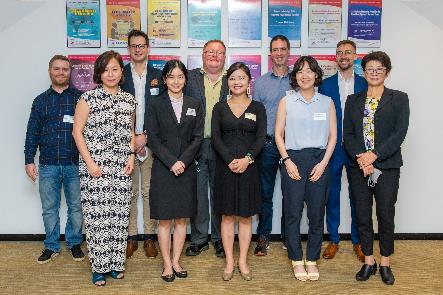

The RSIS’ Maritime Security Programme delivered the “Evolving Roles of Maritime Security Stakeholders” workshop. Held on 21 June 2022, the workshop created an important space for experts from both academia and practice to explore how stakeholders in Southeast Asia perceive maritime security and contribute to its provision.
Workshop participants learned there has been significant transformation over the last twenty years, both in terms of the threats prioritised and the responses enacted. Mr Toh Keng Hoe (Independent Maritime Security Specialist) and Mr Martin Marini (Marine Consultant), for example, demonstrated the growing dangers of cyber-insecurity for shipping and ports respectively, while Lieutenant Commander Farizha bin Ibrahim (Senior Lecturer and Research Fellow, Maritime Research and Excellence Center, Universiti Pertahanan Nasional Malaysia) highlighted how new types of offshore petroleum facilities necessitate different forms of protection. Stakeholders are generally evolving to overcome challenges and fill important gaps. Captain Jay Tarriela (Adviser, Coast Guard Commandant on Maritime Security Affairs, Philippine Coast Guard)showed how Coast Guards are increasingly relied upon for constabulary roles, partially to deescalate tension, while Mr Jay Benson (Director, Stable Seas) provided insights into how non-government organisations leverage an array of instruments to focus on under-recognised security referents such as local communities. In some cases, these transforming roles have necessitated greater cooperation between stakeholders. Dr Asyura Salleh (Programme Support Officer, Global Maritime Crime Programme, United Nations Office on Drugs and Crime ) discussed how international organisations increasingly provide the structures to do this work, while Dr Scott Edwards (Research Associate, Transnational Crime at Sea Project, University of Bristol) demonstrated how states are trying to fulfil this function domestically by harmonising their maritime security policies.
Despite the ongoing transformations, the workshop also revealed ongoing challenges for maritime security provision in the region. Mr Yann Le Goff (Former Regional Police Atttaché, and Regional Coordinator for Indo-Pacific Region, Embassy of France in Singapore ) demonstrated the dangers of politicisation, particularly of law enforcement, while Commander Bagus Jatmiko (Doctoral Student, Naval Postgraduate School) highlighted how tensions between stakeholders arise when some – such as Navies – do not want to relinquish roles they perceive as theirs. Dr Asmiati Malik (Assistant Professor, Universitas Bakrie), further demonstrated how tensions can even arise within stakeholder groups, with fishing industry actors perceiving threats differently based on their business size.
By scrutinising stakeholders individually, workshop participants ultimately uncovered an evolving governance landscape. Each stakeholder contributes essential understandings and tools, but these are not always well-reconciled. Dr Christian Bueger (Professor of International Relations, University of Copenhagen) noted that conversations such as those held during the workshop play an important role in overcoming this. Academics can contribute to understandings, identify what works and what doesn’t, and engender reflexivity. Toward this end, the workshop is part of an ongoing collaboration that will lead to an edited collection of papers.













